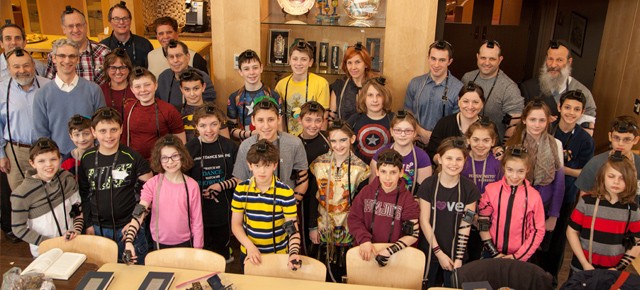
Grades 5-8
Grades 5-8
Ben and Bernice Fiterman B’nai Mitzvah Program
Beth El’s Fiterman B’nai Mitzvah program seeks to raise students, knowledgeable of, inspired by, and committed to, Jewish tradition, for that is truly what “bar/bat mitzvah” means. In the course of the program, students and their families become well versed in synagogue services and form deep ties to each other and to our community.
